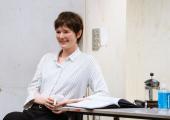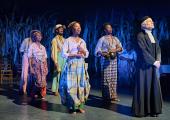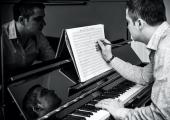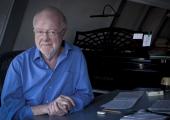'The din is loud these days': playwright Cordelia Lynn on her imminent premiere at the Donmar Warehouse



The opening sentence of Andrea’s 2010 historical novel The Long Song is in the voice of Thomas Kinsman, who is introducing the reader to his mother, July.
"The book you are now holding in your hand was born of a craving," Kinsman declares. "My mama had a story – a story that lay so fat within her breast that she felt impelled, by some force that was mightier than her own will, to relay this tale to me."

The bleakest time of all for live music during the Covid crisis came in the first four and a half months of this year. Re-emergence came too late for many of the big national opera companies – though the Royal Opera threw down a sensational gauntlet with Richard Jones's new production of Mozart's La clemenza di Tito – but the summer houses were under pressure to start delivering, beginning with Glyndebourne in mid-May.

Programming a theatre during a pandemic has been like trying to nail jelly to a set of constantly moving goalposts. Government indecision meant that reopening dates shifted repeatedly while the configuration of our auditorium kept changing as we tried to adapt to ever-evolving regulations around social distancing. Even our audience – once so familiar to us – became an unknown quantity.

A past work of art either still speaks to us in the present, or it is dead. To try and understand a masterpiece, we tend to look at its past: we study it, analyse it, read biographies of the artist behind it and chronicles of its historical background. But it is even more interesting to see what happened to the work after it was finished. What did it mean to the following generations, and, more critically, what does it mean to us today? Is the flame that lit it still burning, or did the ashes die out?

The music Britten composed in his twenties occupies a special place in his output. Even among his detractors there are some who begrudgingly concede that this early period is somehow different: fresher, more extroverted and daring, perhaps less driven by serving a purpose (or “being useful”, in the composer’s words).

For many years, first as a punter then latterly as a reviewer, I have sat in the section of the Royal Albert Hall stalls near stage right, under the BBC Radio broadcast box, knowing that that is where they sit the composers being premiered at the Proms. This means, among other things, that you have to be discreet in voicing opinions about new pieces, and to avoid staring too pointedly.

The National Youth Orchestra of Great Britain’s Hope Exchange is an explosive return to the concert platform for hundreds of teenagers like us, playing a variety of new pieces, with the preparation beginning in hundreds of primary schools across the country.

It’s taken me a day to try to find some words to share at the passing of my dear friend, mentor and guardian angel Louis Andriessen and I’m grateful to theartsdesk for giving me the space. It is such a profound loss because of the profound gifts he gave us. His fabulous music is deep, tender, highly personal and achingly beautiful but also funny, ironic, joyful and deliciously vulgar.

It’s not every day that you have the opportunity to perform with musicians like the ones I’ll be sharing the St John’s Smith Square stage with on Saturday 3 July; organist Kit Downes and cellist Colin Alexander are some of the best musicians I know. I say “share the stage”, but that’s not technically correct. We will be spaced out across the hall and play around with that use of space through the music we create. The audience will be surrounded by our sounds in all kinds of ways.